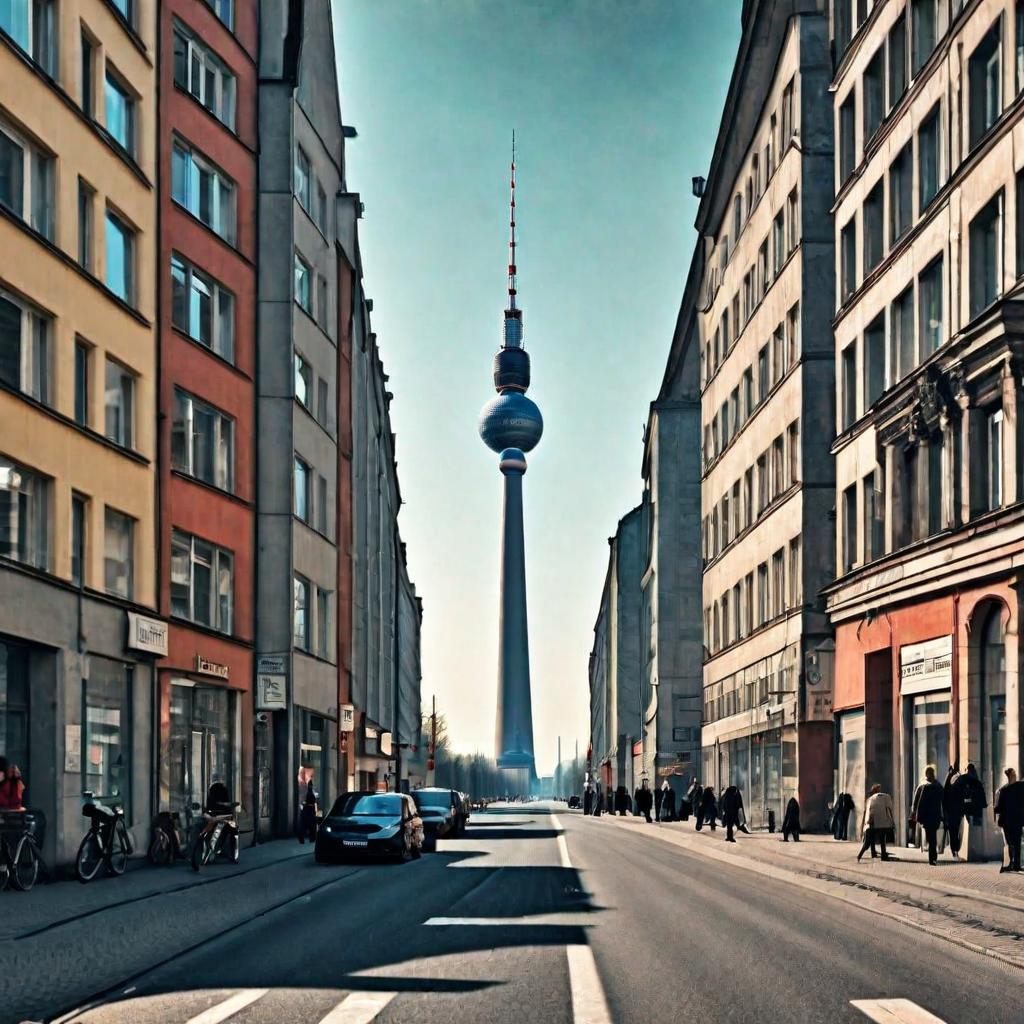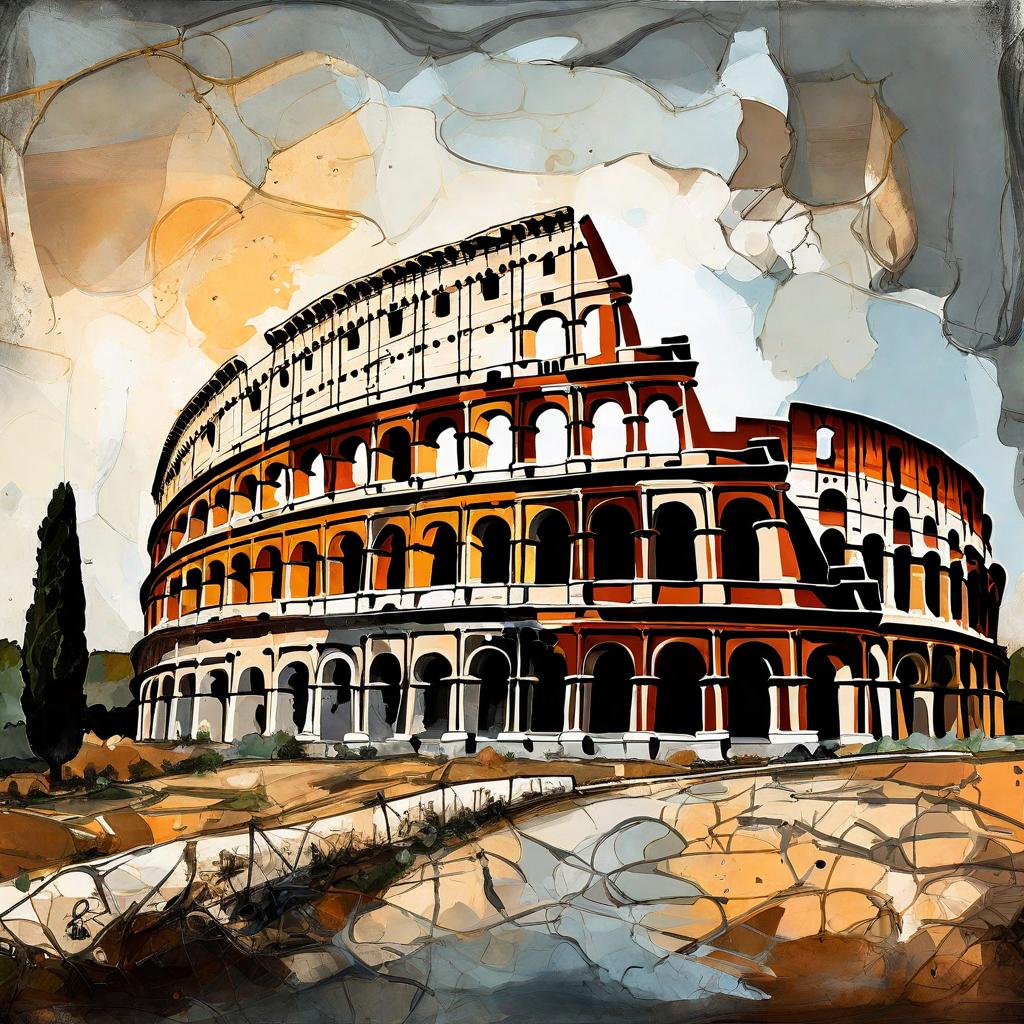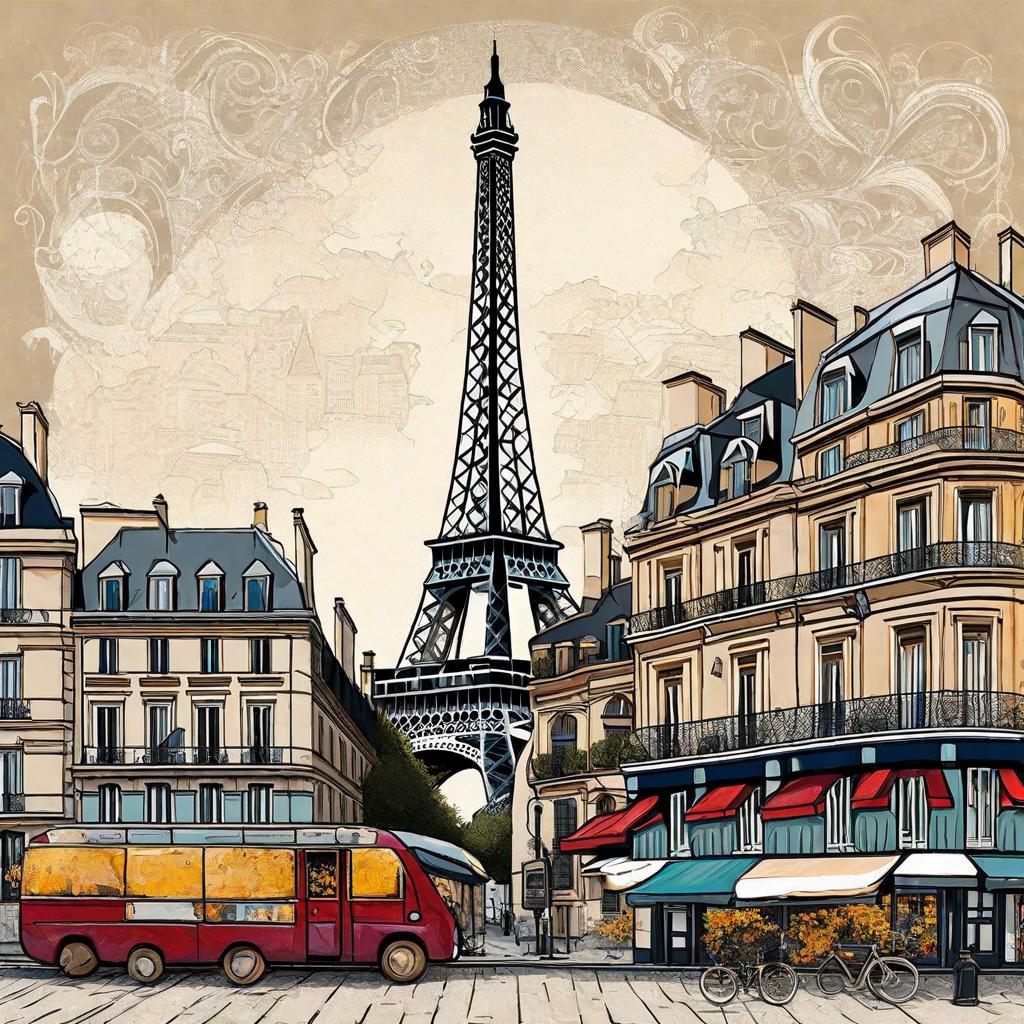Berlin, Germany’s vibrant metropolis, is a city with a rich history, fascinating culture and a unique atmosphere. From majestic landmarks such as the Brandenburg Gate and the Reichstag, to world-famous museum islands, to trendy neighborhoods filled with street art and an underground scene, Berlin has something for everyone. Whether you are attracted by historical walks, artistic experiences, gourmet delights or nightlife, you will definitely not be bored in Berlin. Get ready to discover hidden treasures, taste authentic flavors and experience the free-spirited atmosphere of this cosmopolitan city.
Contents
The best time to visit Berlin
Spring (April to May):
- The weather is mild and pleasant, with average temperatures around 15°C.
- Parks and gardens are blooming.
- Fewer tourists than in summer.
- Accommodation prices are lower.
Summer (June to August):
- The warmest weather with average temperatures around 22°C.
- Ideal for outdoor activities and sitting in cafe gardens.
- There are many festivals and cultural events.
- The most tourists and the highest accommodation prices.
Autumn (September to October):
- The weather is still pleasant, with average temperatures around 18°C.
- Fewer tourists than in summer.
- Colorful autumn leaves in parks.
- Several festivals are held, such as the Berlin International Film Festival.
Winter (November to March):
- The coldest weather with average temperatures around 2°C.
- It may snow.
- Fewer tourists and the lowest accommodation prices.
- The Christmas markets in Berlin are world famous.
Aircraft
Berlin is an international transport hub with two main airports: Berlin-Brandenburg Airport (BER) and Tegel Airport (TXL). Many airlines fly to Berlin from all over the world. You can get to the city center from the airport by train, bus or taxi.
Train
Traveling by train to Berlin from other European cities is convenient and scenic. Deutsche Bahn operates an extensive train network connecting Berlin with destinations across the continent. You can also take an overnight train from some European cities, such as Paris, Vienna and Warsaw.
Car
Driving to Berlin from Western and Central Europe is relatively easy. The city has a good network of highways and roads. However, keep in mind that parking in the city center can be difficult and expensive. You can consider renting a car if you want to make trips outside the city.
Bus
Many bus companies from all over Europe go to Berlin. Buses are usually cheaper than trains, but the journey sometimes takes a little longer.
Local public transport in Berlin
Berlin has an extensive and efficient public transport network, which includes:
Metro (U-Bahn): Fast and convenient metro network with 9 lines and 170 stations. The metro covers the city center and many other areas.
S-Bahn train: Urban rail network with 15 lines and 164 stations. The S-Bahn covers the city center as well as outlying areas and neighboring states.
Trams: Tram network with 36 lines and 377 stations. Trams are particularly useful for traveling in the centers of neighborhoods.
Buses: An extensive bus network with more than 300 routes and 2730 stops. Buses complement the metro, S-Bahn and trams and provide connections to more distant areas.
All these means of transport are operated by Berliner Verkehrsbetriebe (BVG). You can buy tickets at metro stations and train stations, in machines at public transport stops or in BVG vending machines. You can also purchase daily, weekly or monthly tickets that allow you unlimited travel on all BVG transport in the zones you choose at BVG website: https://www.bvg.de/
In addition to BVG, there are other transport companies in Berlin that operate buses, trams and trains. You can also buy tourist cards that include unlimited public transport travel and entry to selected sights.
Other ways to travel in Berlin:
Bicycle rental, Taxi, On foot, Water transport
How to find suitable accommodation in Berlin:
1. Determine your criteria:
Price: How much do you want to spend per night?
Location: Center, quieter neighborhood, near sights, transport?
Accommodation type: Hotel, hostel, apartment, Airbnb?
Amenities: Wi-Fi, breakfast, pool, gym?
Other factors: Number of people, specific requirements (barrier accessibility, allergies)?
2. Use online reservation systems:
Booking.com, Hotels.com, Airbnb, Hostelworld.com, HRS, Trivago
Compare prices, read reviews, filter by criteria.
3. Consider alternative platforms:
Couchsurfing (sharing accommodation with locals for free)
Homestay.com (accommodation with a host family)
Specialized sites (e.g. for budget travelers)
4. Use the tourist information center:
They will provide advice and maps, help with reservations.
Tips:
Book early, especially in high season.
Read the reviews carefully, pay attention to the details.
Check the cancellation policy.
Beware of hidden fees.
Contact the accommodation provider with questions.
Additional resources:
https://www.lonelyplanet.com/germany/berlin
https://www.expedia.com/
How to eat in Berlin
Look for restaurants outside the tourist areas. Prices in restaurants in the city center are usually higher.
Try the lunch menu. Many restaurants offer lunch menus at lower prices than dinner.
Eat street food. There are many great street food stalls in Berlin that offer tasty and cheap food.
Cook for yourself. If you have a kitchen available, you can save money by cooking your own meals. There are many supermarkets and grocery stores in Berlin where you can buy ingredients.
The most famous sights in Berlin:
Brandenburg Gate: This iconic gate is a symbol of Berlin and Germany. It was built in the 18th century and served as the gateway to Berlin.
Reichstag: This historic building was the seat of the German parliament until 1933. Today, it is a popular tourist attraction that offers tours overlooking the city.
East Gallery: Located in the eastern part of the Berlin Wall, this art gallery houses an extensive collection of modern art.
Holocaust Memorial: This memorial is a memorial to the millions of Jews who were murdered during the Holocaust. It is a moving and important monument that anyone visiting Berlin should visit.
Berlin Wall: The remains of the Berlin Wall are a reminder of the division of Berlin during the Cold War. Today, the wall is a popular tourist attraction and a symbol of freedom.
Museum Island: This island on the Spree River is home to five world-renowned museums, including the Pergamon Museum and the New Museum.
TV Tower: This iconic tower is the tallest structure in Berlin and offers panoramic views of the city.
Kurfürstendamm: This shopping street is home to many shops, restaurants and cafes. It is a popular spot for tourists and locals alike.
Tiergarten: This large park is a popular place for rest and relaxation. It is also home to many monuments, including the Brandenburg Gate and the Reichstag.
Checkpoint Charlie: This border crossing was once one of the few places where people could cross between West and East Berlin. Today it is a popular tourist attraction and reminder of the Cold War.
The most popular shopping locations for tourists in Berlin:
Department stores:
KaDeWe: Popular department store with a wide range of brands and products. (Kurfürstendamm)
Alexa: A modern shopping center with shops, restaurants and a cinema. (Alexanderplatz)
Mall of Berlin: A large shopping center with shops, restaurants and entertainment. (Leipziger Platz)
Shopping street:
Kurfürstendamm: Main shopping street with luxury brands, shops and boutiques.
Friedrichstraße: A street with shops for different budgets, from brands to small shops.
Tauentzienstraße: Well-known street with shops and shopping centers, including KaDeWe.
Markets:
Alexanderplatz: Market with souvenirs, clothes, food and flowers.
Hackescher Markt: Trendy market for clothes, jewelry, art and design.
Nollendorfplatz: Food, flower and clothing market.
Other:
Kurfürstendamm: Luxury brands like Louis Vuitton, Gucci and Prada.
Galeries Lafayette: Department store with a wide range of brands and products. (Friedrichstrasse)
Potsdamer Platz: A modern area with shopping malls, shops and restaurants.
Contacts and web links for emergency services and police in Berlin:
Firefighters:
Telephone number: 112
Website: https://www.berliner-feuerwehr.de/
POLICE:
Telephone number: 110
Website: https://www.berlin.de/polizei/
Rescue service:
Telephone number: 112
Website: https://www.drk-berlin.de/angebote/bevoelkerungsschutz-und-rettung/rettungsdienst.html
Other contacts:
Medical emergency: 030 192 33 33
Foreigners Police: 030 254 26-500
Emergency line for help to victims of domestic violence: 030 116 006
Websites with information about safety in Berlin:
https://usebounce.com/guides/berlin/is-berlin-safe-to-visit
https://www.visitberlin.de/en
Important: In case of emergency, always call 112.
Additional information:
All emergency services in Berlin are available 24 hours a day, 7 days a week.
You can communicate with them in German or English.
If you are a tourist in Berlin, we recommend that you register with your embassy or consulate before your trip.
How to find a job in Berlin
Leading job portals:
Indeed: https://www.indeed.jobs/
StepStone: https://www.stepstone.de/
Monsters: https://www.monster.com/
Xing: https://www.xing.com/en
LinkedIn: https://www.linkedin.com/
Arbeitsagentur: https://www.arbeitsagentur.de/
Jobbörse der Bundesregierung: https://www.arbeitsagentur.de/jobsuche/
In addition to these portals, you can also search for jobs on the websites of specific companies that interest you. Many companies post job ads directly on their websites.
What are the requirements for a brigade in Berlin
Valid passport: If you are not an EU citizen, you will need a valid passport to work in Germany.
Visa: If you are not an EU citizen, you will probably need a work visa to work in Germany. There are several types of work visas, so you will need to contact the German embassy or consulate in your country to find out which visa you need.
Residence permit: If you want to stay in Germany for more than 90 days, you will need a residence permit. You can apply for it at the German embassy or consulate in your country.
Tax identification number: Once you start working in Germany, you will need a tax identification number. This allows you to pay income taxes. You can apply for it at the tax office in your place of residence.
Health insurance: Health insurance is mandatory in Germany. You can choose between public and private health insurance.
Requirements for permanent employment in Berlin
Valid passport: If you are not an EU citizen, you will need a valid passport to work in Germany.
Work visa: If you are not an EU citizen, you will probably need a work visa to work in Germany. There are several types of work visas, so you will need to contact the German embassy or consulate in your country to find out which visa you need.
Residence permit: If you want to stay in Germany for more than 90 days, you will need a residence permit. You can apply for it at the German embassy or consulate in your country.
Tax identification number: Once you start working in Germany, you will need a tax identification number. This allows you to pay income taxes. You can apply for it at the tax office in your place of residence.
Health insurance: Health insurance is mandatory in Germany. You can choose between public and private health insurance.
Qualifications: You will need to have the required qualifications for the position. This can include education, work experience and language skills.
More information about working in Berlin
https://www.berlin.de/einwanderung/
https://www.arbeitsagentur.de/
https://www.make-it-in-germany.com/
Important: Make sure you have all the necessary documents and visas before traveling to Berlin. For EU citizens, the situation is somewhat easier.
If you want to explore Berlin in more depth, get the Berlin WelcomeCard, which gives you unlimited rides on public transport and discounts on entrance to many sights and attractions.



